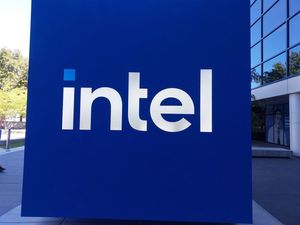November 29, 2023
Amsterdam, the Netherlands and Chicago, USA – Royal Philips (NYSE: PHG, AEX: PHIA) a global leader in health technology, and Vanderbilt University Medical Center (VUMC), home to top-ranked adult and pediatric hospitals in the Southeastern U.S., today announced initial results of a research collaboration to decarbonize the health system’s radiology department. The project, which was initially announced in May 2023, shows that sustainable initiatives can be both environmentally friendly and cost-effective. The assessment indicated that circular business models, such as upgrades, can reduce total cost of ownership of an MR system by up to 23% and carbon emissions by 17%, and for CT, refurbished systems and equipment upgrades can contribute to reducing costs of ownership by up to 10% and 8% respectively, and reducing carbon emissions by 6% and 4% respectively.
Philips and Vanderbilt assessed 13 diagnostic imaging devices including MR, CT, ultrasound and X-ray, which account for an estimated 12,000 patient scans per month and found that, over a period of 10 years, they emit the CO₂ equivalent of approximately 1,000 gas cars driven for one year. In addition, the energy use of scanners accounted for more than half of the total emissions released from diagnostic radiology. Other generators of carbon emissions within the department included the use of medical disposables, PACS (picture archiving and communication system) and linen production and laundry.
The assessment showed that both technology and healthcare practitioners play a significant role in reducing overall greenhouse gas emissions. For example, 44-75% of energy is consumed outside of patient scanning time, therefore the research emphasized the importance of working with staff to improve patient scan efficiency and industry partners to develop techniques to reduce carbon emissions between scans. Improving scanning efficiency with technology including those that are AI-enabled may conserve energy and reduce unnecessary scan repetition.
“Human health is closely connected to the health of the environment, and we need to take care of both, which is why we feel a great sense of urgency to address our carbon emissions and develop a more sustainable and healthier path forward,” said Diana Carver, PhD, Assistant Professor of Radiology & Radiological Sciences, Vanderbilt University Medical Center. “Our collaboration is leveraging our team’s collective knowledge and expertise to reveal key learnings that will direct our efforts to cut emissions.”
Along with implementing a set of prioritized interventions defined by Philips and VUMC that will support the carbon footprint reduction of the radiology department, the two organizations intend to share their findings in a scientific publication, with the objective of facilitating knowledge sharing and enabling further improvement of environmental strategies throughout the healthcare industry.
“It is imperative that healthcare acts quickly, collectively, and globally to mitigate climate impact. This study challenges conventional thinking that sustainability increases costs when it, in fact, does just the opposite. Energy-efficient, circular, digital and cloud-based technologies can help address climate change and this research shows that individual behavioral changes can also play an important role in speeding up global efforts towards decarbonization,” said Jeff DiLullo, Chief Region Leader, Philips North America. “Our teams continue to work closely to define an approach and model that VUMC can leverage, anticipating results of this research will inspire others to take action.”
During #RSNA23, Dr. Carver presented initial results of this research in the session “Exposing Sustainable Imaging Strategies: The Role of Practitioners in Reducing Carbon Footprint.” Today, Dr. Cassandra Thiel, a lead researcher on the project, will outline additional research insights in “Spinning Radiology Resources: Balancing environmental and economic considerations with circular business models” and “Shedding Light on Sustainability for Radiologists - A Comprehensive Life Cycle Assessment (LCA) of a Diagnostic Radiology Department.”
Philips also hosted a virtual Symposium session – Sustainable Radiology: From Aspiration to Action – moderated by Jeff DiLullo, featuring leading industry experts including John Scheel, MD, Professor of Radiology & Radiology Sciences and Vice Chair of Global Health and Sustainability at Vanderbilt University Medical Center, who presented best practices to help improve care for patients and the planet.
At RSNA, Philips is launching its new ‘care means the world’ brand campaign, highlighting that improving human health and environmental health go hand in hand. With sustainability embedded in everything the company does, Philips is leading the way in innovation to enable healthcare that is connected, inclusive, accessible and sustainable. Visit Philips at RSNA 2023 for more information.
For further information, please contact:
Avi Dines
Philips North America
Tel: + 1 781 690 3814
Email: avi.dines@philips.com
Mark Groves
Philips Global Press Office
Tel: +31 631 639 916
Email: mark.groves@philips.com
Vanderbilt Radiology Communications:
Derek Scancarelli, MA
Senior Communications Specialist
derek.scancarelli@vumc.org
Jackson Hicks, MS
Associate Communications Specialist
Jackson.hicks@vumc.org
About Royal Philips
Royal Philips (NYSE: PHG, AEX: PHIA) is a leading health technology company focused on improving people's health and well-being through meaningful innovation. Philips’ patient- and people-centric innovation leverages advanced technology and deep clinical and consumer insights to deliver personal health solutions for consumers and professional health solutions for healthcare providers and their patients in the hospital and the home. Headquartered in the Netherlands, the company is a leader in diagnostic imaging, ultrasound, image-guided therapy, monitoring and enterprise informatics, as well as in personal health. Philips generated 2022 sales of EUR 17.8 billion and employs approximately 70,700 employees with sales and services in more than 100 countries. News about Philips can be found at www.philips.com/newscenter.
About Vanderbilt University Medical Center
Vanderbilt University Medical Center (VUMC) is the largest comprehensive research, teaching and patient care health system in the Mid-South region, with the highest ranked adult and children’s hospitals in the Southeast by U.S. News & World Report. Based in Nashville, Tennessee, VUMC sees more than 3.2 million patient visits per year in over 180 ambulatory locations, performs 91,000 surgical operations and discharges 79,000 inpatients from its main-campus adult, children’s, psychiatric and rehabilitation hospitals and three regional community hospitals. The Medical Center is the largest non-governmental employer of Middle Tennesseans, with nearly 40,000 staff, including more than 3,000 physicians, advanced practice nurses and scientists appointed to the Vanderbilt University faculty. For more information and the latest news follow VUMC on Facebook, LinkedIn, Twitter and in the VUMC Reporter.
Attachments







